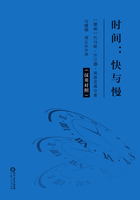
Preface for the Chinese edition
Nineteen years have already passed since this book was first published in English, and it is a pleasure and an honour for me to see it translated into Chinese presently. Much has changed in these almost two decades, not least in the realm of information and communication technology. Allow me to mention some of the most important changes.
1. The social media barely existed in 2001. MySpace, Twitter, Facebook, YouTube, WeChat and aplethora of other networking platforms were all established in the following years, and have flourished worldwide only after 2010.
2. The Internet was largely the domain of what I call the global middle class;relatively affluent people concentrated geographically in Europe and North America. Today, the far largest nationality on the Internet are the Chinese, and hundreds of millions of Indians, Africans and South Americans are also online.
3. The Internet was mainly accessed via computers, while the smartphone has gradually taken predominance since it was first introduced in 2007.
4. Services were barely available online, and apart from books, few goods were sold. Today, there seems to be an app for everything from booking a haircut or a taxi to paying one's bills and buying clothes and groceries. A lot of trade in goods and services has migrated from the physical shop to the online world.
5. The Internet of Things had not yet come into being. By this I mean objects, such as refrigerators, loudspeakers or lawnmowers, which are connected to the Internet and to each other, and which increasingly communicate with each other without the direct intervention of humans.
In general, connectivity has been enhanced enormously worldwide since the early 2000s. Keywords are the social media, the smartphone and improved infrastructure. These rapid changes imply that many of the examples in Tyranny of the Moment come across as dated.At the same time, I would argue that the problems addressed in the book are just as relevant today as they were then, if not more so. The acceleration of time owing to the ever faster and more efficient modes of networking and communication has continued, and it remains a fact that the attention of others is becoming an ever scarcer resource, simply because we are all now available to each other, which means that being
left out of significant networks is not only easy, but it is also easily noticed. Being forgotten by other people is one of the greatest social anxieties of our time. Moreover, the ability to concentrate on a matter for a long time, crucial for cultural growth and personal development alike, is by now widely seen as being threatened by the interruptions, distractions and fast communication of the Internet (now mainly mediated by smartphones).
I would, in conclusion, venture the claim that in spite of the fast development of information and communication technology in the last couple of decades, and notably the transformative effects of the smartphone, the main argument of this book still deserves to be taken seriously. I do not expect everybody to agree with what I am saying, but I hope that the reader will find it worthwhile to engage with the argument.
Oslo, September 2019
Thomas Hylland Eriksen